For visitors to Japan

There are increased number of tourists and foreigners arriving in Japan as student or worker. In this page, you will find general information about healthcare system in Japan.
- Advisory prior to travel
- General Info
- How to find a hospital
- Language assistance
- Payment and costs
- Consultation process
Advisory prior to travel
People with chronic illness and treatments
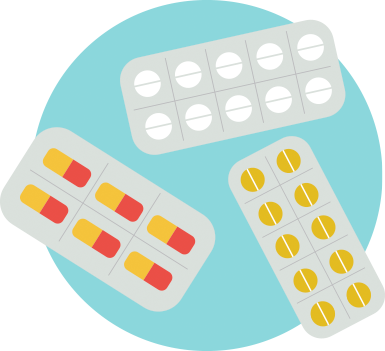
Prior to your visit, advanced preparation of a document in English about your health condition or a document that explains your current treatment will be useful when you need to see a medical institution in Japan.
For people who needs to carry medical narcotics or psychotic drugs for treatment purposes, there is a rule set to be followed. Medical narcotics must be approved by the Director-General of the Local Welfare Bureau in advance. Procedures for psychotic drugs varies depending on the total amount of medicine you need to carry. It is not possible to import (export) drugs or even mailing them and to let acquaintances carry them for you. Note that Japan has very strict punishment for importation of even small amounts of medical narcotics, and you should be sure to follow the procedures carefully to avoid potential legal consequences - including prison or deportation - for bringing even small quantities of medical narcotics with you. Be aware that some over-the-counter medicines available in some countries (such as panadeine) can be illegal in Japan.
Vaccinations
Please get your necessary vaccinations completed before your travel to Japan, together with your vaccination records. In Japan, there are currently outbreaks of rubella and measles, please be sure that your vaccination is updated. Hepatitis A transmission was on rise from 2018 among same-sex male partners and congruently, sexual transmission of Hepatitis B is not uncommon. If you are at risk of infection, please make sure to recieve Hepatitis A and B vaccinations.
For COVID-19, check the latest information from the following site.
https://www.japan.travel/en/coronavirus/
Registration for health insurance
Medical expenses can be expensive if you don’t have any health insurance. It is important to acquire a private health insurance and travel insurance and know the details of your contracts in advance, otherwise, you will be charged a large amount of money compare to those who have their insurance.
Foreign residents and their families who have a residence permit in Japan for three months or more are obliged to join the national health insurance system of Japan. For foreigners who works for a company are automatically registered through their company and there will be no need to be registered individually. Japanese national health insurance is not available for tourists or visitors who are specifically coming for treatment.
Visa for medical stay
For visitors who intends to come to Japan for the purpose of receiving a medical treatment in Japan you can be issued with a “Visa for medical stay”.
For details, check the latest information on the following site.
https://www.mofa.go.jp/j_info/visit/visa/medical_stay1.html
General Info
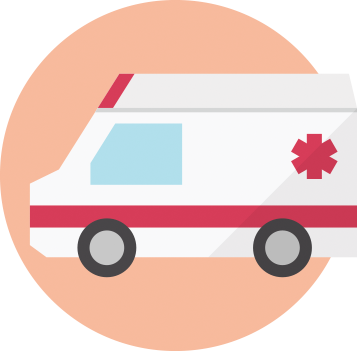
Accessibility to medical facitilites is generally good in Japan.
Japan does not have a General Practitioner (GP) system, and you will have to decide of which department you would need to see for your condition. If you would like to be seen by general hospital/tertiary hospital, you would need a referral by local clinics for you to be seen or get an appointment. If you have any problems on Eys, Ears, Nose, Throat (ENT) or dental problems, please seek a local specialized clinic. For cases of which you don’t know what specialist you should see, please inquire at internal medicine or the pediatrics.
For emergency, contact #119 for the fire department, ambulance, and the rescue team. If you suspect an accident or incident, contact the police at #110. You can contact the fire department or the police for free from a public payphone.
https://tabunka.tokyo-tsunagari.or.jp/guide_eng/kinkyu/01.html
There are many medical institutions that accept first-time patients even if they do not have an appointment, but there are some medical institutions that cannot conduct medical examinations or testing unless you make an appointment, so please be sure to check before you visit.
Do not forget your health insurance card or other document proving that you have a health insurance. Medical institutions are required to check your Japanese national health insurance card once a month, so be sure to bring them when you see a doctor. Foreign nationals may be asked to present their passports and documents proving their eligibility to stay in Japan (Residence card).
How to find a hospital
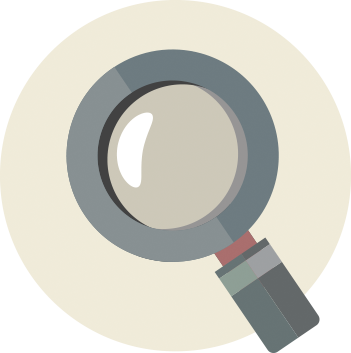
There are both public and private medical facilities in Japan.
The internet is commonly used to search for medical facilities, and there are various medical institution search sites and applications, but please be careful in choosing one. Sites that post patients feedback might be biased and differ from the facts.
In addition, the information on the site may be out of date, so please check and contact the institution before you visit.
Under the medical law, there is a medical information provision system (Medical Information Net) that provides information on medical institutions by prefectures for residents. It is highly advised that you access this system for a specific prefecture in Japan.
https://www.mhlw.go.jp/stf/seisakunitsuite/bunya/kenkou_iryou/iryou/teikyouseido/index.html
There is a system currently in development that allows foreigners to avail Japanese medical services safely and securely. One of the systems currently available is called "Medical Institution Certification System for Accepting Foreign Patients (JMIP)", which certifies medical institutions that can respond in consideration of different cultures and background. Services includes medical guidance in multiple languages and is conforming to different religion/beliefs of the foreign patient. You can search for medical institutions registered with JMIP at:
http://jmip.jme.or.jp/index.php
There are other organizations and businesses that do the same certification.
List of medical institutions accepting foreign visitors to Japan by the Japan National Tourism Organization (JNTO)
https://www.jnto.go.jp/emergency/eng/mi_guide.html
Medical Excellence JPAN (MEJ)
https://medicalexcellencejapan.org/en/
If parents are having trouble how to deal with their children's symptoms on holidays and at night, there is also a telephone consultation desk where they can consult a doctor or nurse.
https://www.mhlw.go.jp/topics/2006/10/tp1010-3.html
However, languages available might be limited.
Language assistance

English-speaking doctors and medical institutions that are active in accepting foreigners in urban areas are easy to find, but if you are in a rural area, this might be difficult. Multilingual services can be hard to find but many medical facilities have recently been incorporating the use of translation services by telephone or tablet.
Upon searching for medical facilities, it is recommended to check if interpretation services are available as well. As shown in "How to Find a Hospital," the number of foreign patients is increasing in Japan, so we are building a system to ensure that foreign patients can receive medical examinations with peace of mind. There are several systems that allow foreign patients to be accepted at a certain level of service, and certified hospitals are more likely to be able to support multiple languages.
Prefectures may provide some kind of medical interpretation support to patients who do not speak Japanese. Check the website of the local government of your area to see if there are any support services available.
Privacy of the patients is the utmost priority of a hospital. They take every effort to ensure understanding of patients on their treatment in order to obtain the correct consent. If you bring a Japanese-speaking family or friend to the consultation as interpreter, it is likely that they will know your condition as well.
Also, depending on the person's ability to understand Japanese, translation might not be always accurate. Make sure to consider this when you ask for help.
Payment and costs
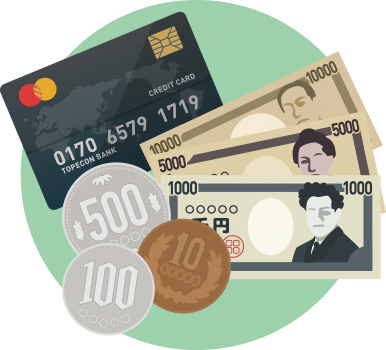
The cost for foreigners without a Japanese national health insurance and needs medical care and treatment during their stay in Japan can be costly and expensive. It is important to acquire a private health insurance and travel insurance and know the details of your contracts in advance.
There are also private insurance that you can avail after you arrive in Japan but there are certain requirements before you can avail them. Foreign residents and their families who have a residence permit in Japan for three months or more are obliged to join the national health insurance system of Japan. For foreigners who works for a company are automatically registered through their company and there will be no need to be registered individually.
If you have a Japanese national health insurance and have paying it monthly, you will only pay 30% of the total medical cost. However, if you do not have any type of insurance, you will have to pay upfront and the amount can be very expensive.
Most medical treatment costs are covered by medical insurance. However, medical insurance does not cover overtime consultations other than medical emergency, medical certificate fees, pregnant woman examination and childbirth costs, dental examinations, medical examinations, and medical examinations. Please contact a medical institution prior to your visit.
Payment by credit card might not be possible in all medical facilities, so it is recommended that you bring a certain amount with you upon consultation.
Keep the receipts of all the treatments you received so that you will be reimbursed by your health insurance afterwards.
Consultation process
The general process of visiting a hospital is as follows:
-
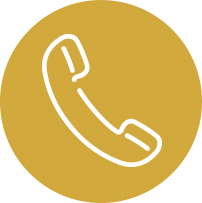
0.Inquiries before the visit
Contact the medical institution to confirm the date and time of your first visit, the need for an appointment, and the need for a referral letter. If you would like to pay by credit card, confirm whether they accept payments by credit card or not.
-
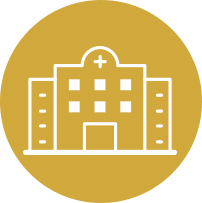
1.Reception
When you arrive at the hospital, go to the reception desk and tell them that this is your first visit. Present your health insurance card and referral letter. If you are a foreign national, you may be asked to show your passport or other identification card. If you are not a resident of Japan, you may be asked to pay a deposit.
-

2. Fill up a health history questionnaire
You will be asked to answer a health questionnaire. In addition to your current symptoms, tell them about your past history and allergies. Body temperature may be checked before you see the doctor.
-
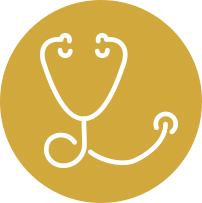
3.Consultation and examination
If you visit without an appointment, you will called according to the time and order you arrived. Patient order may change depending on patient conditions and urgency. The waiting time might be longer depending on the number of patients.
Depending on doctors diagnosis, you might need additional tests, if so, you will be directed or they might ask you to comeback ona different day.
-

4. Payment
Proceed to payments after your consultation and testing. Medical expenses will be calculated according to the standard medical fee system in Japan. For those without an insurance, the amount specified by the hospital will be charged.
-
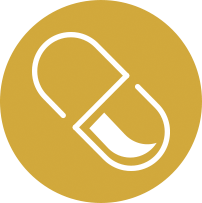
5. Prescription
If you have a prescription medication, you may receive this at an in-hospital or out-of-hospital pharmacy ("chōzai yakkyoku").
When you go to a dispensing pharmacy, present your prescription and insurance card. There are often multiple dispensing pharmacies near medical institutions, so you don't have to worry about finding them. Prescriptions are often only valid for 4 days. Receive your medications at a pharmacy as soon as it is issued.
A medicine notebook ("kusuri techō") is usually issued by pharmacies so that prescriptions received from various medical institutions can be recorded in one notebook. If you have any questions about taking the drug, you may ask your pharmacist.
-
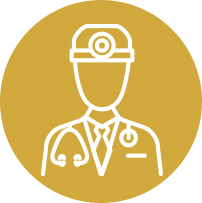
6. Referral
Referral letter may be issued if further treatment was advised by the doctor.

